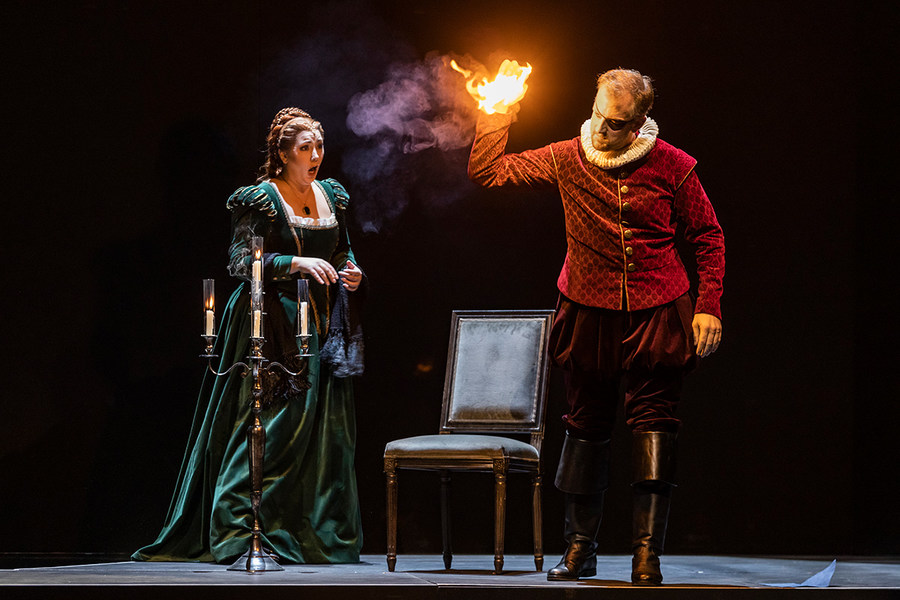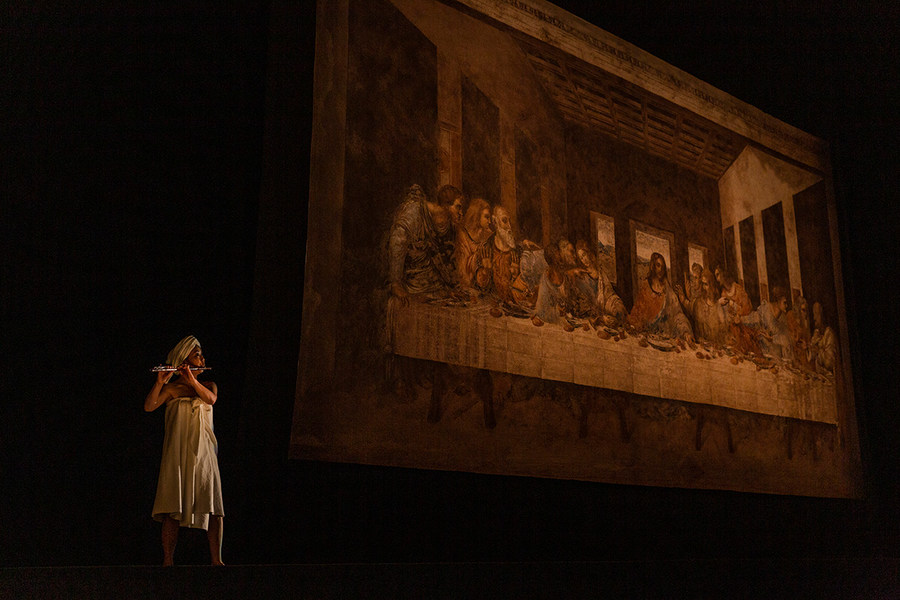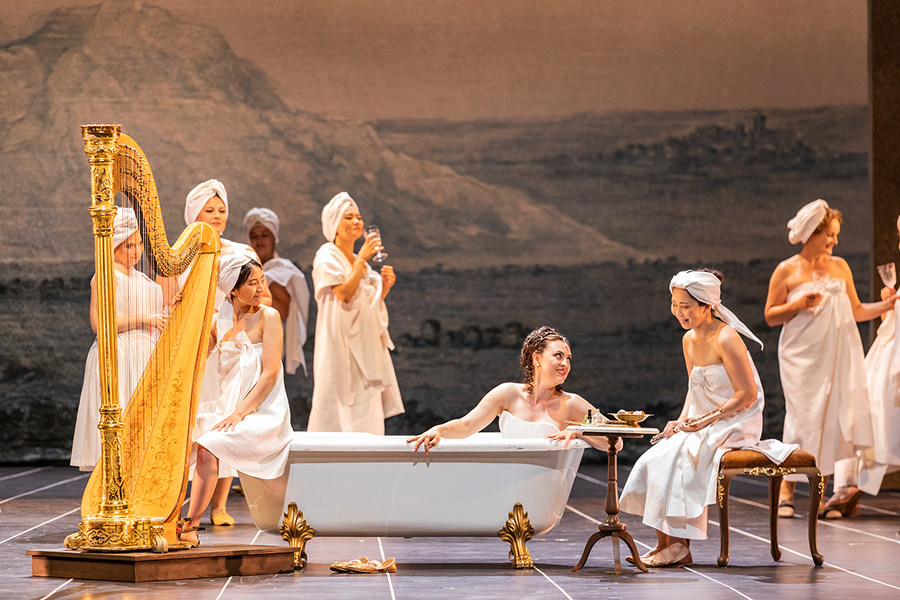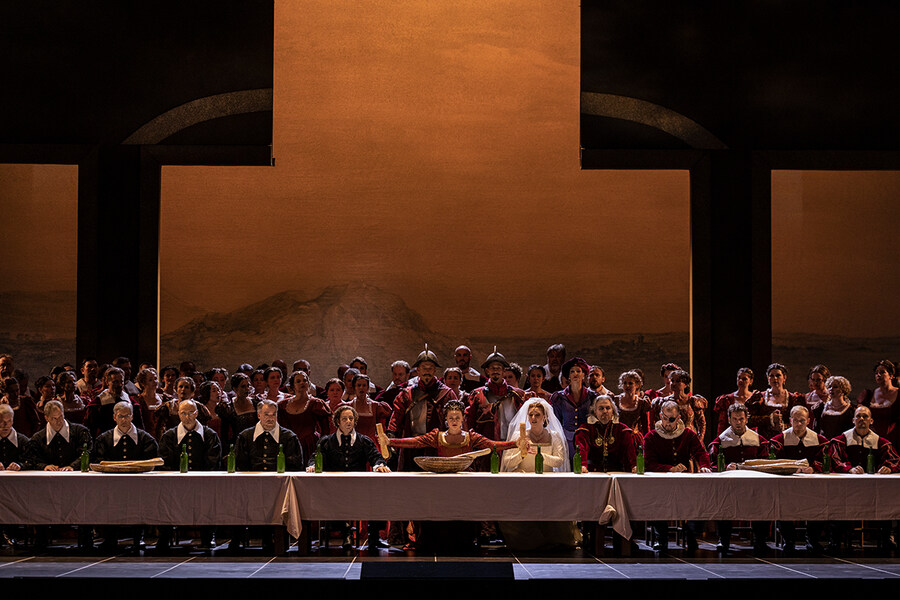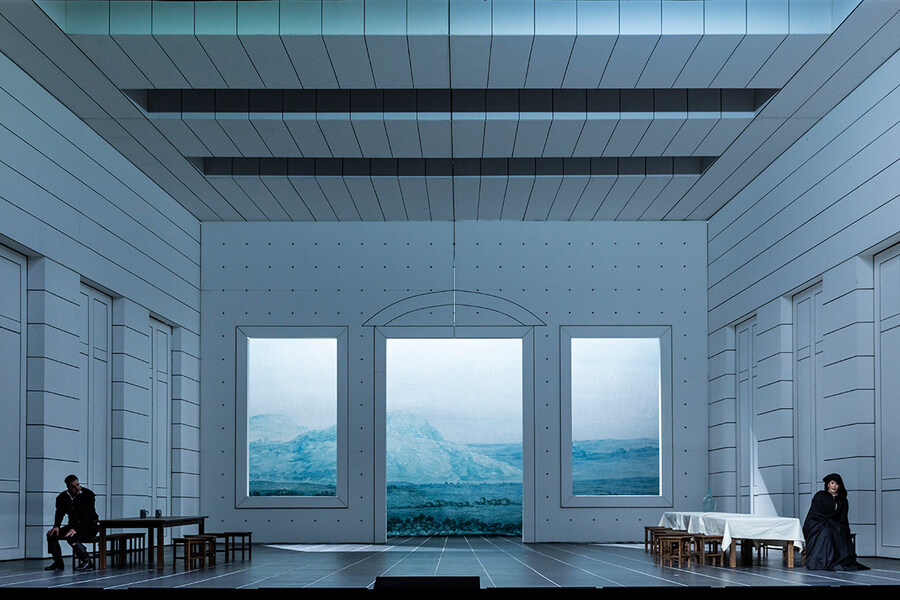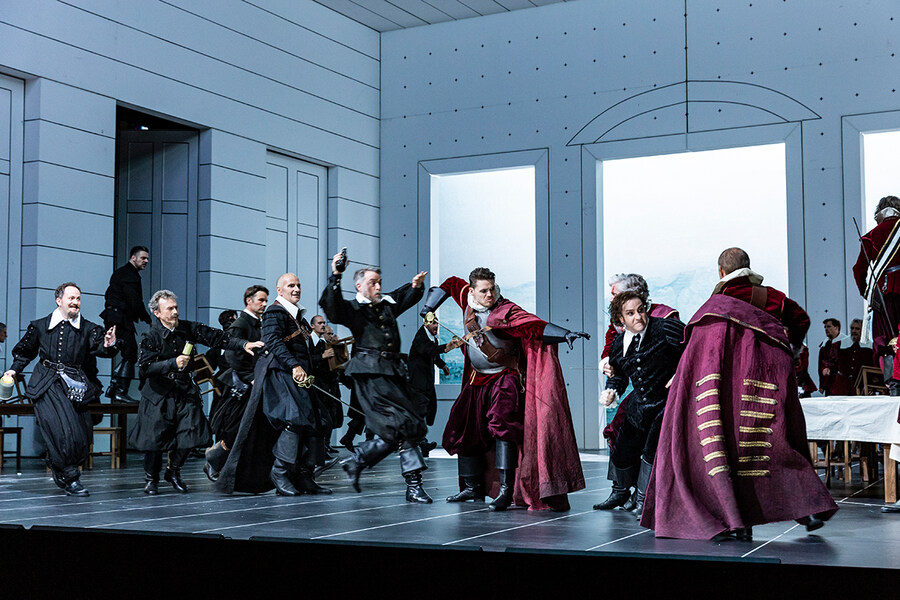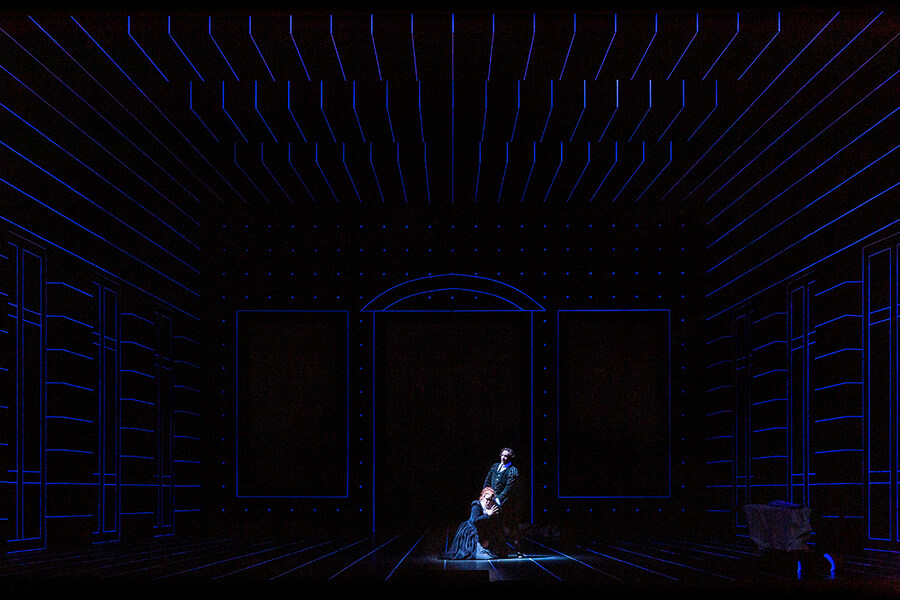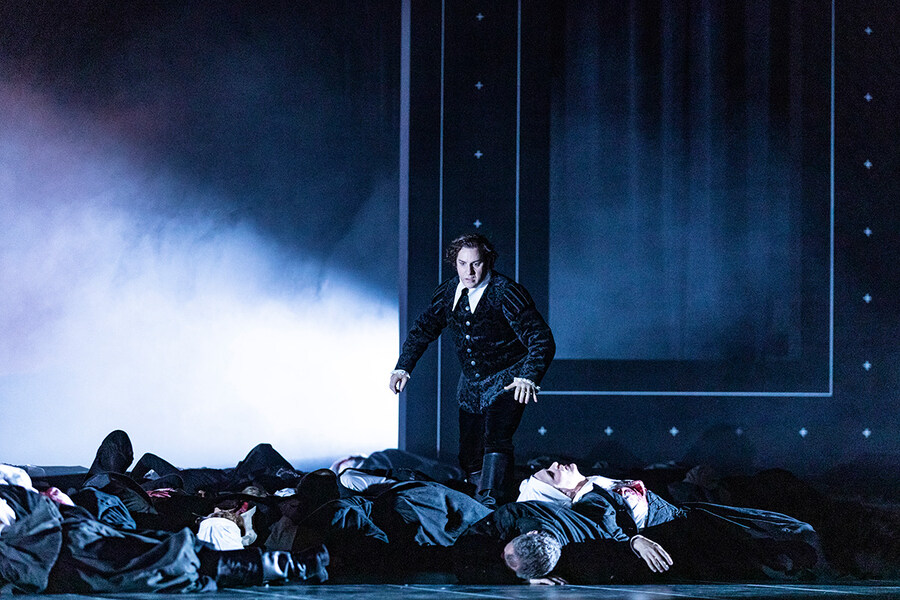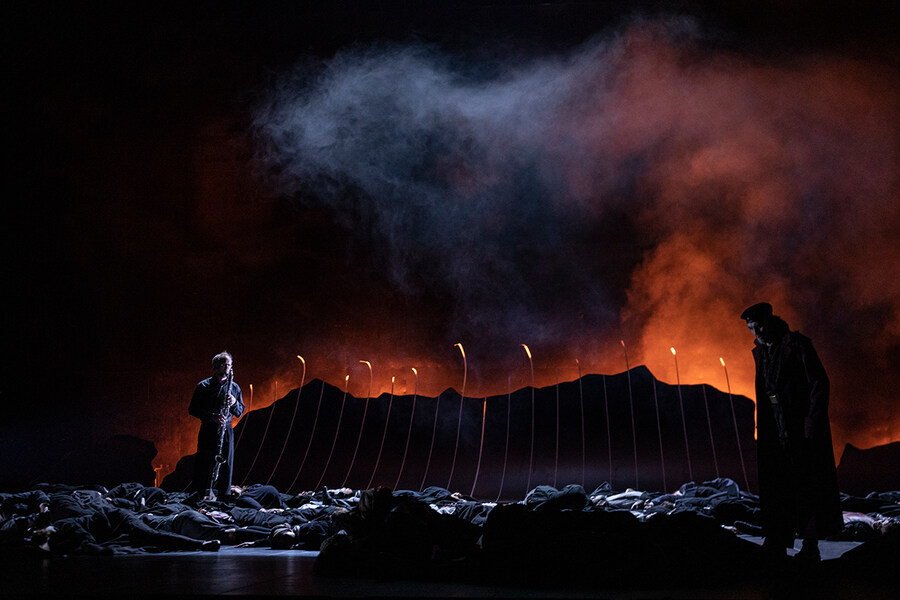Grand opéra in five acts
Text by Eugène Scribe and Émile Deschamps
Performed in French with German and English supertitles
Premiere
29. June 2019,
No further performances in the current season.
Explore
Making-of
Les Huguenots – Making-of
As famous as Les Huguenots was in the 19th century, the work is notorious for its demanding vocal parts. Venera Gimadieva, who celebrated successes at the Semperoper as Lucia di Lammermoor and as Violetta in La traviata, sings Marguerite for the first time in the new production; the American soprano Jennifer Rowley, who has already appeared at the Semperoper as Tosca, makes her role debut as Valentine.
Stücktrailer
Les Huguenots
Over the course of a single night, the whole of Paris was transformed into a mortuary: On St. Bartholomew’s Day in 1572, French Catholics murdered thousands of the Huguenots, their fellow citizens who adhered to the new Reformation faith. 260 years later, Giacomo Meyerbeer brought these events to the operatic stage in The Huguenots. Describing the love affair of the Huguenot Raoul and the Catholic Valentine, the composer demonstrates how a religious conflict can escalate and lead to a massacre in which even family ties no longer count. This key work of 19th-century opera, which premiered in 1836, all but disappeared from the repertoire after the first world war. In his production of The Huguenots, director Peter Konwitschny shows how religious strife gradually destroys a society and turns neighbours into enemies.
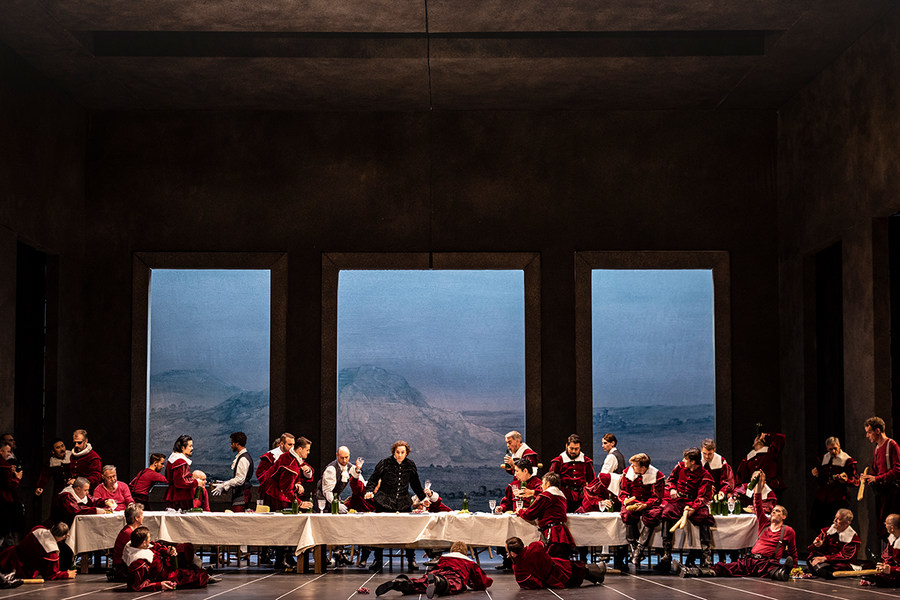
Gallery
